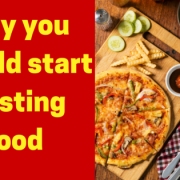Moderation Always Errs Towards Excess

Read Time [3 minutes]
Let’s review some definitions of moderation. Here’s the traditional definition out of Webster’s Dictionary:
Moderation – noun 1. the quality of being moderate; restraint; avoidance of extremes or excesses; temperance.
Sounds pretty good right? People rarely think about themselves in terms of extremes or excesses, and it’s generally good policy to live your life outside of the extremes.
Here’s Dr. Chung’s definition of moderation when it comes to most of the things we think should be had in moderation:
Moderation – noun 1. A fundamentally useless term that is impossible to implement because there’s no standard for what represents moderate
Everyone talks about moderation. Your traditional doctor who tells you that the paleo diet is too extreme because you should have carbs in moderation. Your obese uncle that offers you a 2nd piece of cheesecake because you should have sweets “in moderation.”
But has anyone ever sat back and asked what does moderation even mean for human beings? Let’s use carbohydrates as an example. Lots of people are high on low carb diets, so what does it mean for a human to actually have a moderate amount of carbohydrates?
- To the prehistoric caveman, moderate may have meant 40 grams of seeds and roots
- To the low-carb weight lifter, a moderate amount of carbohydrates might be at 100 grams of sweet potatoes and protein bars.
- To the average Earthling eating a Standard American Diet (SAD) a moderate amount of carbohydrates might be 200-300 grams of breads and cereals.
- And to the sedentary 60 year old with obesity, a moderate amount of carbohydrates might be 400 grams from pizza and soda.
Moderation is hard because moderation depends on the individual. Moderation is useless as a recommendation because no one really knows what it means. But here’s the part that most important:
Moderation is a recipe for failure for people who are looking to create change in their lives.

Why Moderation Can Be Bad Advice
People who advocate for moderation do so with your best interests in mind. Remember that when listening to people in your life, they are doing it from the lens of their own perspective.
In my experience, whenever you try to approach a change in diet through moderation, you will almost always lean towards excess. What do I mean by that?
It means that if you set a goal to eat a moderate amount of carbs, you will almost always eat more carbs than you intended to.
It’s not because we are weak. It’s because our default wiring is to seek out things that make us feel good. Without a focused effort to resist urges or stay disciplined, we are predisposed to do things that produce those wonderful brain chemicals that make us feel satisfied…for a moment.
The problem is that if someone is sick or they have a specific goal they want to achieve, they may not be able to afford the luxury getting that momentary feel good.
They have to be disciplined. They have to consciously resist that urge to feel good in the moment so that they can get the ultimate goal of having a happier and healthier overall existence.
Discipline Allows Room to Falter
Anyone that knows me knows that I’m no stranger to some deliciously bad food.
I’ve enjoyed more than my share of pizzas, cookies, and hamburgers.
Here’s the thing. I eat really well and I stay disciplined at least 4 days of the week. My discipline allows me the wiggle room to enjoy these foods once or twice a week without any guilt or negative consequences.
And it is when you are healthy and tolerant of these bad foods where you want to embrace discipline, because for someday you may become too sick to have ANY wiggle room.
Patients with diabetes, gout, Celiac Disease, and other inflammatory disease….they can’t afford moderation anymore because their illnesses won’t allow it.
Having discipline now is important because you may not be able to afford moderation in the future.






